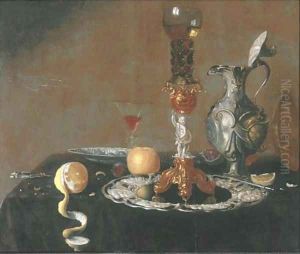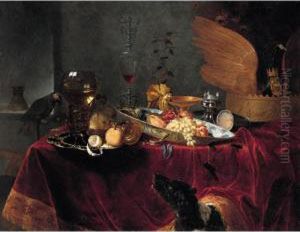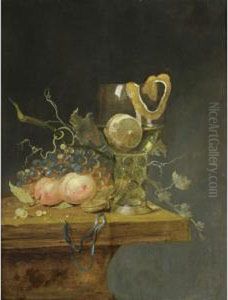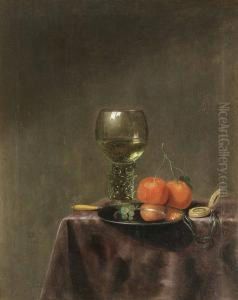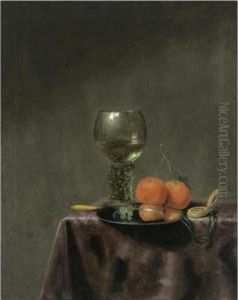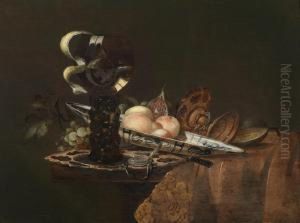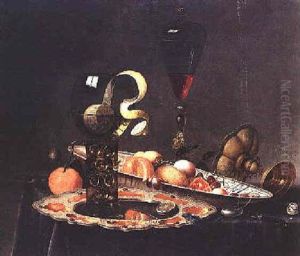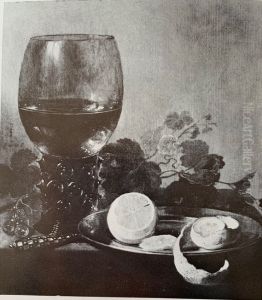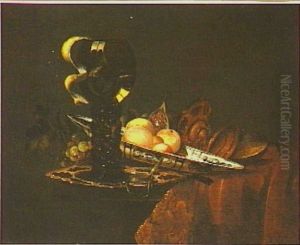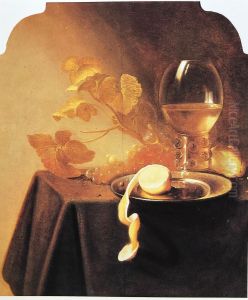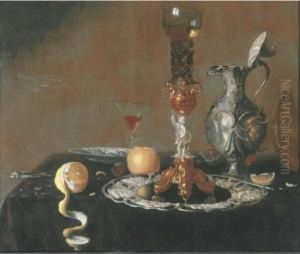Gerard Van Berleborch Paintings
Gerard van Berleborch, often misspelled as Berleborch, and more commonly known as Gerard ter Borch or Terborch, was a Dutch Golden Age painter who was born in Zwolle, the Netherlands, in 1620. His work is notable for its meticulous detail, often focusing on domestic, genre scenes and portraits. Ter Borch's ability to capture the texture of materials, the subtlety of human expressions, and the interplay of light and shadow in indoor settings distinguished him as a master of his time.
Ter Borch came from a family of artists; his father, Gerard ter Borch the Elder, was also a painter, and it was under his guidance that young Gerard began his artistic training. His early works were influenced by his travels across Europe, including time spent in Italy, Spain, and England, before he ultimately settled in the Dutch city of Deventer in later life. Throughout his career, Ter Borch developed a refined style that emphasized the quiet dignity and intimate moments of his subjects. He is particularly renowned for his small-scale paintings of private scenes, such as 'The Letter' and 'The Suitor's Visit', which capture the nuanced social interactions of the 17th-century Dutch elite.
One of Ter Borch's most significant contributions to art was his influence on the development of genre painting in the Netherlands. His detailed and nuanced approach to depicting everyday life had a profound impact on later artists, including Johannes Vermeer, who is thought to have been influenced by Ter Borch's work. In addition to genre scenes, Ter Borch was also an accomplished portraitist, creating vivid and insightful portraits of individuals from various walks of life.
Gerard ter Borch's legacy extends beyond his contributions to genre and portrait painting. He was a member of the painters' guild in Deventer and served as an important mentor and teacher to younger artists. His approach to painting, characterized by a delicate handling of light and an extraordinary attention to detail, has continued to be celebrated for its elegance and realism. Ter Borch died in Deventer in 1683, leaving behind a body of work that continues to be admired for its quiet beauty and technical precision. His paintings are held in high regard and can be found in major museums around the world, testament to his enduring influence on the art of the Dutch Golden Age.
